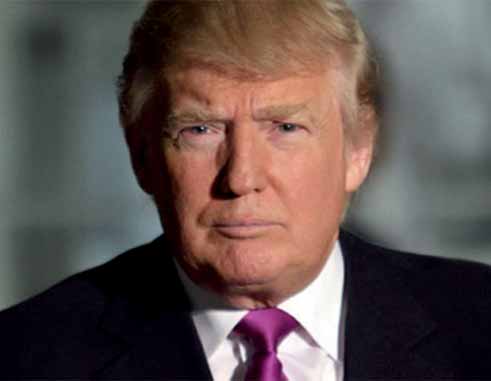
WHAT are the possibilities for peace in the Middle East?
The perennial question beckons once again, even more so since U.S. President Donald Trump’s December 6, 2017 announcement that he views Jerusalem as belonging to Israel, plus his authorization of the relocation of the U.S. Embassy from Tel Aviv to the long-disputed territory.
The decision sparked outrage worldwide and has reignited Arab passions to an unprecedented degree, with countless results and pending implications.
This action not only effectively rules out the U.S. role as a mediator between the Palestinians and Israelis, but has also triggered a consolidation of overall support for the Palestinian cause.
However, the decision opened the way, too, for divided factions in Ramallah and Gaza to come to talks quickly, to make genuine political peace and forge a practical unity between the Palestinian Liberation Organization (PLO) and Hamas.
The Israeli government was the main benefactor of the decision, but it also isolated the U.S., with all the other members of the United Nations (UN) Security Council and an overwhelming majority in the UN General Assembly rejecting it outright.
The decision opened the way for the PLO to go on the international circuit in search of new partners for peace.
The Trump position, bad as it was, continues to have both intended and unintended effects.
As intended, Israel was assured it has the current U.S. president’s full support of its unilateral claim on all of Jerusalem. UN member states, including Washington’s traditional allies, were forced to take a position; those that didn’t vote with the U.S. were told they would pay a heavy price – especially those receiving U.S. aid. The UN itself was also clearly warned it could see a reduction of the U.S.’s annual financial contribution.
But despite the loud threats, the vast majority of nations voted with their consciences. The unintended effect was that the rest of the world, with insufficient exceptions to make a difference, has taken a principled position and reiterated their support for a two-state solution for Palestine.
The decision has also given voice to the previously quiet debate on whether the UN headquarters should remain in New York and whether the host country will link its own membership in significant organizations and its financial obligations to the voting of member states on related issues.
Meanwhile, the mechanics of implementing the U.S. Embassy’s relocation will take many years, and Guatemala – one of the few countries having voted with the U.S. on the matter – may be the first to do so.
Peace in the Middle East and a two-state solution for Palestine may be as far away as ever. However, the Palestinians ended 2017 and begin 2018 with greater global support for their cause – and the Trump decision may in actuality have trumped its maker.
• Earl Bousquet is a contributor to china.org.cn, editor-at-large of The Diplomatic Courier and author of an online regional newspaper column entitled Chronicles of a Chronic Caribbean Chronicler.















Earl,
The superficiality of your opinion piece leaves one with the impression that you were mainly concerned with using the word “trumped” in your headline. What’s missing?
The creation of the apartheid state of Israel and the dehumanizing Palestinian refugee conditions could not come to pass but for the full support of the US, after Britain had done a “Pilate” and washed their hands of the Palestinian Mandate.
In order to secure its imperialist goals in the Middle East, the US then bought and coerced UN members to admit Israel to the UN.
Since then, the US has continually funded the apartheid regime for repression of the legitimate political claims of Palestinians, as well as to steal their land and water.
All US administrations have pretended to be honest brokers for Palestinian statehood while actively arming their oppressors. In fact, Hamas is a CIA creation meant to usurp the legitimacy of the PLO in the eyes of Palestinians and the world.
Your milquetoast statements are nothing but the “Groundhog Day” stasis allowed to be printed in the so-called free press for consumption by the “sheeple” of the world.
The location of US embassies is of no great import to the cause of the Palestinians. Rather, the deliberately aroused controversy is a blind against the growing knowledge of a majority of the world population, that the US has, in the last 10 years, ramped up its progrom of visiting war and chaos on any country which will not kow-tow to its imperialist demands, using its armies of Captagon-fuelled Al-Qaeda (now ISIS) mercenaries (see Yugoslavia, Afghanistan, Iraq, Ukraine, Libya & Syria); and are now concentrating their efforts in Africa. This level of CIA activity has not been seen since Cuba fought them off successfully.
We’ve reached the point where it is less important to bell the cat, but to de-fang it completely. How, you say? Calling out the worthlessness of the petro-dollar!